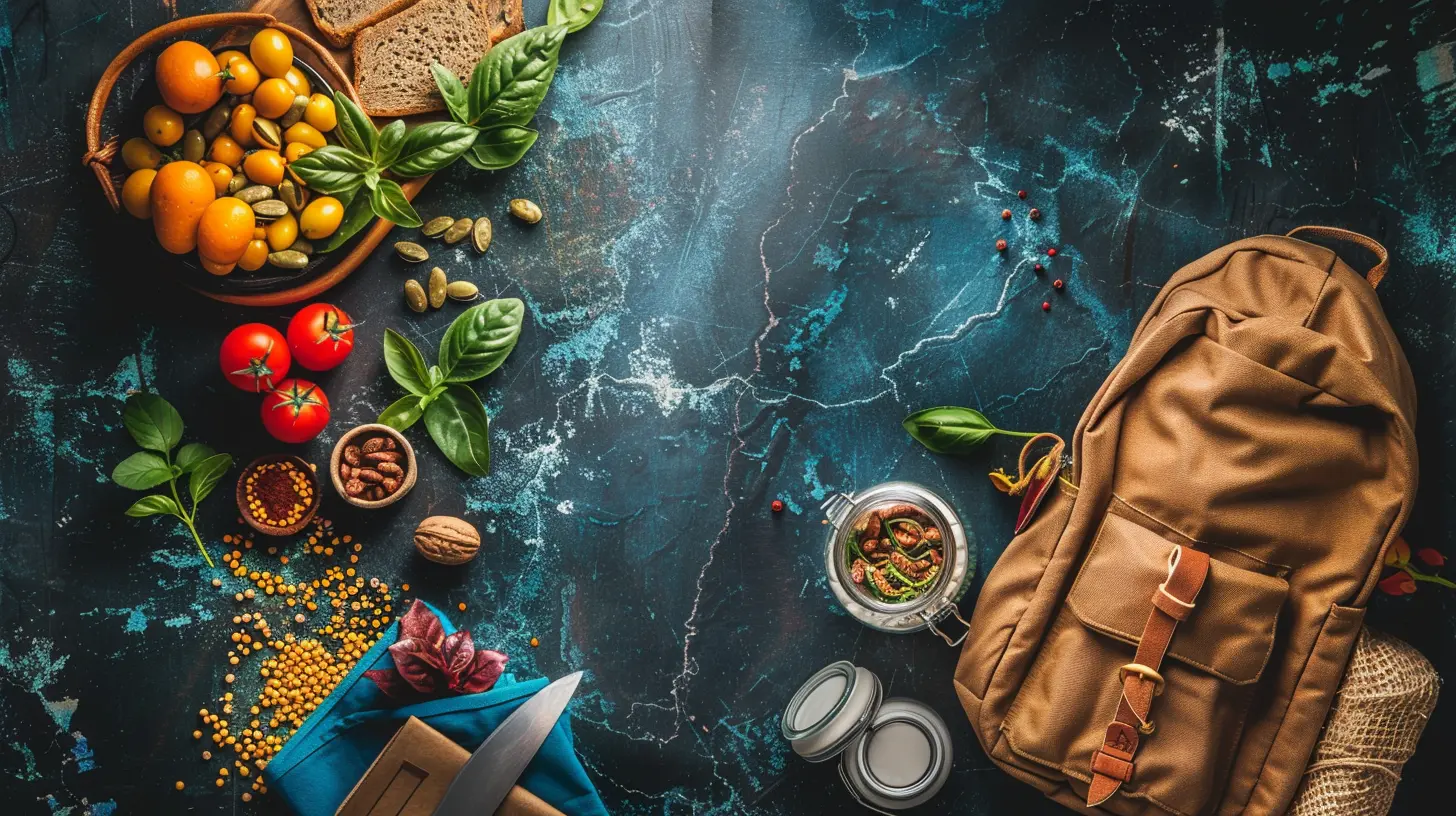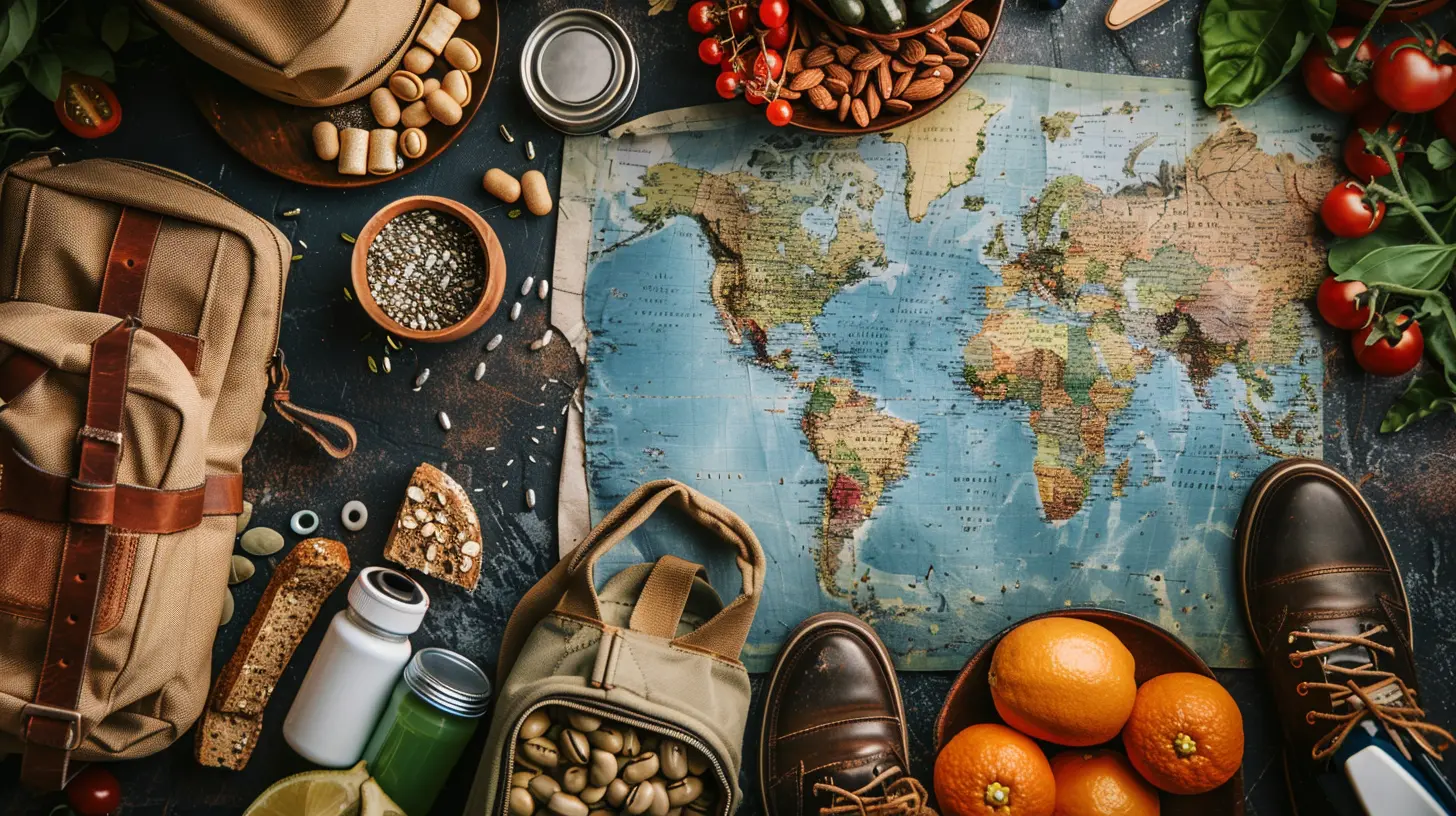Traveling with Food Allergies: Tips for a Safer Journey
20 September 2025
Planning a trip is exciting, right? New places, different cultures, and of course—tasty food! But let’s be real—if you or a loved one has food allergies, that excitement can come with a side of anxiety. The thought of an allergic reaction miles away from home? Yikes. But here’s the good news: traveling with food allergies is 100% doable with a little prep and a lot of awareness.
Let’s walk through how you can have a fun, fearless, and (most importantly) safe journey—without letting food allergies hold you back.
Why Planning Ahead Is Your Superpower
If you have food allergies, spontaneity can feel like the enemy. You can’t just dive into the unknown and hope for the best. But planning? Planning is your best friend.Know Your Triggers Like the Back of Your Hand
Before anything else, make sure you have a solid understanding of your allergies. Are they mild or life-threatening? Can you tolerate cross-contact, or is that a deal-breaker? Knowing the specifics helps you communicate clearly and advocate for yourself when it matters most.Research Your Destination
Different countries have different food customs and labeling laws. Some places are allergy-aware, others... not so much. Look up:- How common your allergen is in local cuisine
- Emergency response systems
- Availability of medical care and pharmacies
- Allergy-friendly restaurants or stores in the area
And don’t forget to check whether your meds are legal or available in your destination country!
Pack Like a Pro
You wouldn’t go to the beach without sunscreen, right? Same goes for your allergy toolkit when traveling.Essential Medical Supplies to Bring
- Epinephrine auto-injectors (always bring more than one)- Antihistamines
- Inhalers (if you have asthma)
- Medical ID bracelet or necklace
- Doctor’s note explaining the need for your meds
- A translated allergy card (more on that below)
And stash these items in your carry-on—never in checked luggage. You need them within reach, not under the plane.
Emergency Allergy Card in Local Language
You might be fluent in English, but what if you’re in Thailand and need to explain that peanuts are a serious no-go?Carry a printed card that says something like:
> "I have a severe allergy to peanuts. If I eat even a small amount, I could have a life-threatening reaction. Please help me avoid any food that contains or may have been in contact with peanuts."
Translate it into the local language (use a verified translation service or ask a native speaker), laminate it, and keep it handy.
Booking Your Trip: Choose Wisely
When booking flights, hotels, or restaurant reservations, never assume they’ll understand your needs. But don’t worry—you can totally find places that will work with you.Airlines and Airports
Call ahead to let the airline know about your allergy. Some will allow pre-boarding so you can wipe down your seat and tray table. Others can make announcements or restrict serving specific allergens.Pro tip: Pack your own safe snacks and meals. Airport food isn’t exactly allergy-friendly.
Hotels and Accommodations
Look for places with kitchens or kitchenettes. Having the option to prepare your own food can be a total game changer. Some hotels even offer allergy-aware dining—reach out before booking and ask about their policies.Bonus: Apps like Spokin or AllergyEats can help you find allergy-friendly stays and eats.
Navigating Restaurants Like a Boss
Eating out can be one of the scariest parts of traveling with food allergies. But don’t let that steal your joy. With a few strategies, you can have amazing meals and stay safe.Communicate Clearly (and Kindly)
Let your server know about your allergies before you order. Be specific. “I have a severe allergy to shellfish. I can’t eat food that has touched shellfish or was cooked in the same oil.”Use your translated allergy card to ensure there’s no misunderstanding.
Ask the Right Questions
- What's in the sauce?- Is this cooked in shared oil?
- Can the kitchen use clean utensils and surfaces?
- Do you have any allergy protocols?
If something feels off or you’re unsure—trust your gut. It’s totally okay to walk away.
Stick to Simple Dishes
The fewer ingredients, the fewer chances something goes wrong. Grilled chicken with veggies? Safer bet. Grandma’s “secret recipe” stew? Maybe skip it unless you know what’s inside.Snack Smart: Always Have Backups
Even if you’re eating out, always carry safe snacks. You never know when plans will change—or food options disappear. Think protein bars, dried fruit, crackers, or even pre-packed meals.It’s your edible insurance policy.
Learn Key Words in the Local Language
You don’t need to speak a language fluently to stay safe. Learn a few key allergy-related phrases like:- “I am allergic to [allergen].”
- “Does this contain [allergen]?”
- “Please do not use shared utensils.”
- “Call emergency services.”
Apps like Google Translate can help, or you can jot it all down on cue cards.
Create an Emergency Game Plan
Hope for the best, plan for the rest.Know Where the Nearest Hospital Is
Before you even land, map out nearby hospitals, especially if you’re traveling to more remote areas. Have the address, phone number, and directions—both on paper and saved digitally.Travel Insurance Is a Must
Make sure your policy covers emergency medical care and allergic reactions abroad. It’s a small price for peace of mind.Travel Companions: Keep Them in the Loop
If you’re traveling with others, teach them how to help in case of an emergency. Show them how to use your epinephrine auto-injector. Let them know what signs to watch for.You’re a team on this adventure, and everyone should know their role.
Recap: Your Allergy Travel Checklist
Here’s a handy list to keep you on track:✅ Doctor’s note & emergency plan
✅ Extra medications (carry-on only)
✅ Translated allergy cards
✅ Safe snacks and meals
✅ Local medical info
✅ Travel insurance
✅ Allergy-aware accommodations
✅ Supportive travel buddies
Stick to this checklist, and you’ll be well on your way to a safe, stress-free adventure.
Real Talk: Yes, You Can Travel with Allergies
Traveling with food allergies isn’t about restriction—it’s about empowerment. It’s knowing your body, trusting your instincts, and taking smart steps to create a happy, healthy experience.Don’t let fear steal the wonder of new places. You have every right to see the world and savor life—safely.
So pack that bag, grab your passport, and get ready to make some incredible (and allergy-safe) memories.
Bon voyage!
all images in this post were generated using AI tools
Category:
Food AllergiesAuthor:

Madeline Howard
Discussion
rate this article
1 comments
Tatianna Jackson
Awareness and preparation are key for safe travels.
September 25, 2025 at 4:03 AM

Madeline Howard
Absolutely! Being aware of your allergies and preparing ahead can significantly enhance your travel safety.


